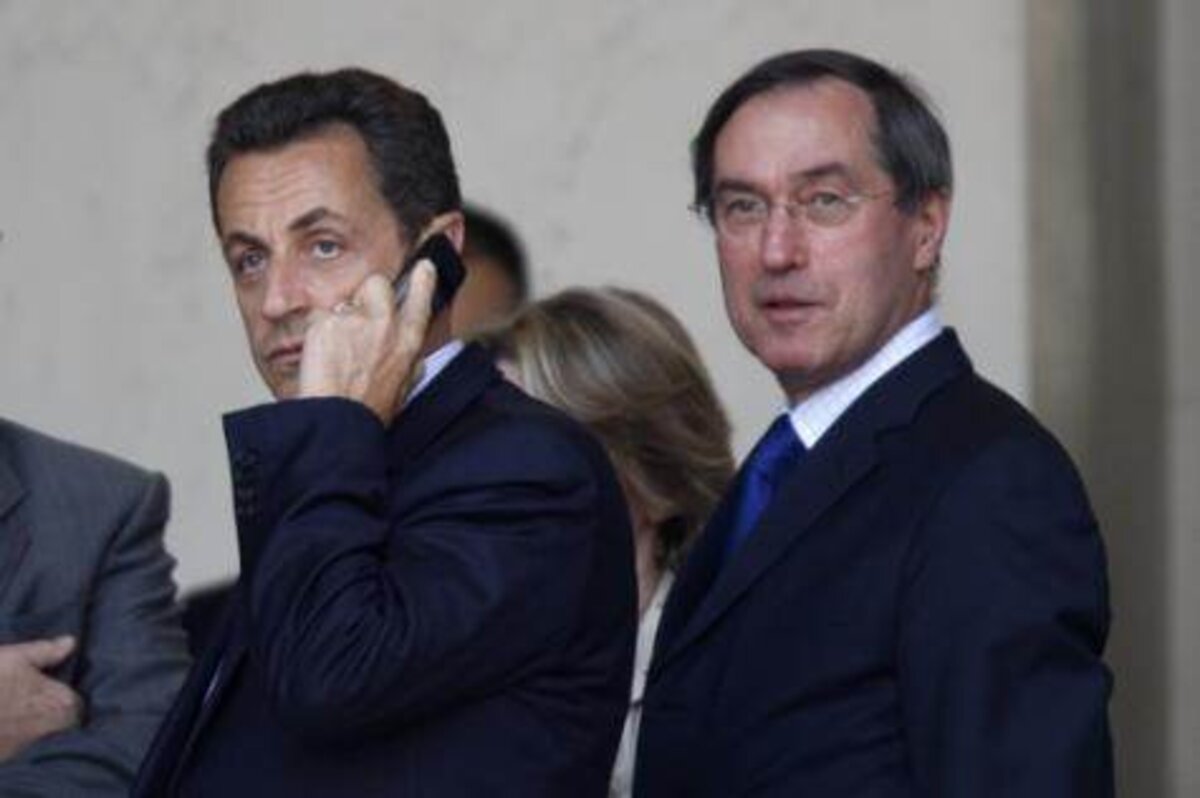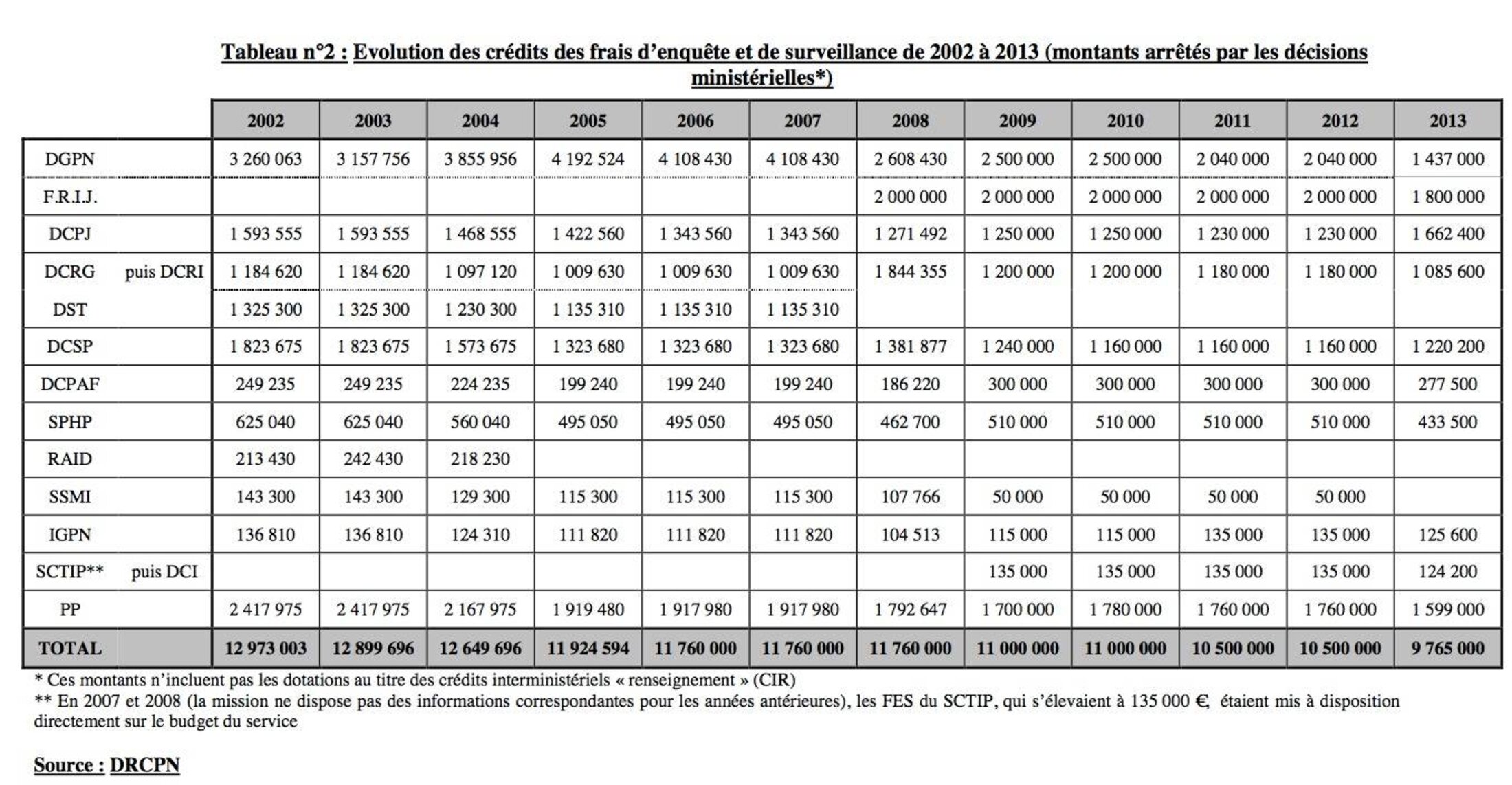Amid the escalating revelations in a series of graft scandals rocking the French political establishment, a net is now closing in on former French interior minister Claude Guéant, a longstanding close aide to former president Nicolas Sarkozy, with the opening on Friday of an investigation into how he received an estimated 240,000 euros in secret cash payments from a fund that was in fact destined for special police operations.
Guéant is already one of the key figures under investigation in a judicial probe into the suspected illegal funding of Sarkozy’s 2007 presidential election campaign by the late Libyan dictator Muammar Gaddafi. In a separate judicial investigation into the suspected fraudulent payment in 2008 of 403 million euros to business tycoon Bernard Tapie, a friend of Sarkozy, Guéant’s name is cited in several witness statements as a central figure to secret meetings held to organise the payout.
But in what appeared as an almost anecdotal revelation when compared to the implications of the two judicial investigations, it emerged this week that Guéant, 68, received a secret monthly tax-free bonus of 10,000 euros paid in cash while he served as chief-of-staff to Sarkozy when the latter was interior minister.

After Sarkozy’s election as president in 2007, Guéant again served as his chief-of-staff at the Elysée Palace, until he was himself appointed interior minister in February 2011, a post he occupied until Sarkozy and his conservative UMP party were beaten by the socialists in last year’s presidential and legislative elections.
The disclosure of the secret cash payments made to Guéant was announced in the findings of an official internal enquiry ordered by current interior minister Manuel Valls. The enquiry has lifted the lid on both the cosy system of personal gratification enjoyed by Sarkozy’s senior aides and also an institutionalised practice of covert perks paid to ministry staff from public funds destined specifically for police operations.
The monthly cash payments of 10,000 euros were handed to Guéant between the summer of 2002 and up to the summer of 2004, found the enquiry, which was carried out by the public administration inspectorate, the IGA, and the national police inspectorate, the IPGN.
Valls passed on their joint report, released on Monday, to the public prosecutor’s office, which on Friday announced it was launching a preliminary investigation into a suspected fraudulent use of public funds.
The enquiry, ordered by Valls last month, stemmed from a police raid on Guéant’s home and offices in February this year, when evidence was found that he had paid several bills with vast sums of cash. Police also found trace of a mysterious foreign bank transfer of 500,000 euros into one of his French bank accounts.
The raids in February were part of a preliminary investigation into the suspected illegal funding of Sarkozy’s 2007 presidential election campaign by Gaddafi, which itself was triggered by a Mediapart investigation revealing the existence of an official document written by a senior figure in Libya referring to the regime’s approval of a 50 million-euro payment to Sarkozy's campaign. The case is now the subject of a sweeping judicial investigation, opened in April this year.
Guéant claimed that the ready cash he disposed of, which he said served to pay for purchases amounting to between 20,000 euros and 25,000 euros, came from a system of bonuses paid by ministries to senior civil servants, and which he claimed was regular practice at the interior ministry until 2006.
However, while such a system had existed for decades in French ministries, whereby ministers distributed cash gifts to their close aides, paid out of a public fund set up specifically for the purpose, it was ended by former socialist prime minister Lionel Jospin in December 2001.
Guéant’s confusing explanation prompted Valls to order the internal enquiry.
French daily Le Figaro, citing an unnamed senior police source, said the cash payments from the French police force’s fund for ‘investigation and surveillance expenses’ were distributed by Sarkozy to “at least two or three” aides.
When details of the police raids were revealed late April, Guéant claimed that the mysterious bank transfer of 500,000 euros came from his sale to a Malaysian lawyer in 2008 of two 17th-century paintings of naval scenes by the Dutch artist Andries Van Eertvelt. However, art experts have established that the price was well above the market value, and his claims that he requested and received a culture ministry authorisation for the sale abroad was officially denied by the ministry.
The French police fund for ‘investigation and surveillance expenses’ from which Guéant received his monthly cash payments was first established in a 1926 decree which made clear it was destined to be used for expenses “that an officer can be called upon to incurr for the execution of the mission that he is given”.
More specifically, this refers to the payment of informers, the purchase of goods or services for an investigation (notably in urgent cases or those requiring secrecy) – as outlined in an internal police directive dated February 1998 and which was drawn up by none other than Claude Guéant himself, when he was then the director-general of the French national police force. Guéant even insisted in the document that “in no case should these credits be considered as an allowable contribution towards a system of indemnities”.
However, that is exactly what Guéant accepted their use for when he joined newly-appointed interior minister Nicolas Sarkozy as chief-of-staff in the summer of 2002. Prime Minister Jospin’s reform one year earlier of the ministerial cash bonuses, which until then were largely ignored by the public and officially ignored by the tax authorities, ordered that any bonuses given to top civil servants on top of their regular salaries should be taxable and paid by traceable bank transfer.
According to Edmond Aichoun, an offical with FO Centrale, one of the unions representing interior ministry employees, less highly-placed personnel have “never received any cash bonuses since 2002”. His union and another another representing interior security services managerial staff, the SCSI, have now demanded that Guéant should refund the state with the value of the cash payments he received. In a recent interview with French daily Le Monde, former conservative sports minister, now a senator, Chantal Jouanno, who also worked in a senior position under Sarkozy at the interior ministry between 2002 and 2004, said she had never received cash bonuses.
Contacted earlier this week by Mediapart, Claude Guéant declined to comment on the issue. “I decided several weeks back not to make any more comments,” he said.
Valls orders fund 'strictly for operational needs only'
The internal enquiry into the cash payments paid to Guéant also lifted the veil on the use of the fund for investigation and surveillance expenses, the yearly value of which has fallen from 12.9 million euros in 2002 to 9.7 million euros in 2013.

Enlargement : Illustration 3

While 1.8 million is currently allocated for the payment of police informers, the enquiry found that the most part of the fund was “distributed for individual or collective gratification. In its conclusions, it criticised the lack of a “formalised monitoring system” and “a rule of archiving and conservation” which meant that “the management departments of central services do not, in most cases, have any awareness of the local choices made for the distribution of envelopes [sic] nor the ‘ultimate’ beneficiaries of the investigation and surveillance expenses”.
In December 2012, a total of 32,550 euros taken from the fund was paid in cash bonuses to senior staff working for the inner cabinet of the French national police force’s director-general. The enquiry found that they were also paid bonuses from the fund in June 2012, although the total sum remains unknown. The fund also served to pay for what the enquiry described as an “end-of-year bonus” to senior aides of the Paris police prefect.
Elswhere, the fund was found to have been used to pay for “food expenses” at the French internal intelligence agency, the DCRI, and at the police special operations tactical unit, the RAID, it paid for “spending on the services internal convivial activities”.
The IGA and IPGN investigators found it was also used by regional police head offices to “reward deserving officers or to meet expenses relating to [ensuring] the cohesion between services, (for example: team meals, cocktails during the award of gratifications, the purchase of equipment etc.).”
But even the internal police inspection service itself, the IPGN which ‘polices’ the police, was criticised by the report for its “cursory accountancy” of spending on investigations and which did not allow for “sufficient traceability”.
Following the publication of the enquiry's report earlier this week, interior minister Manuel Valls released a statement announcing that use of the fund for investigation and surveillance expenses would henceforth be “strictly limited to operational needs only”, and that “the indemnities or gratifications paid to police personnel can only be made from credits allocated for that purpose”.
The minister also announced the creation of a system “of internal traceability and control of the use of funds”, with an annual review under the management of the IGA and the IPGN.
-------------------------
English version by Graham Tearse


